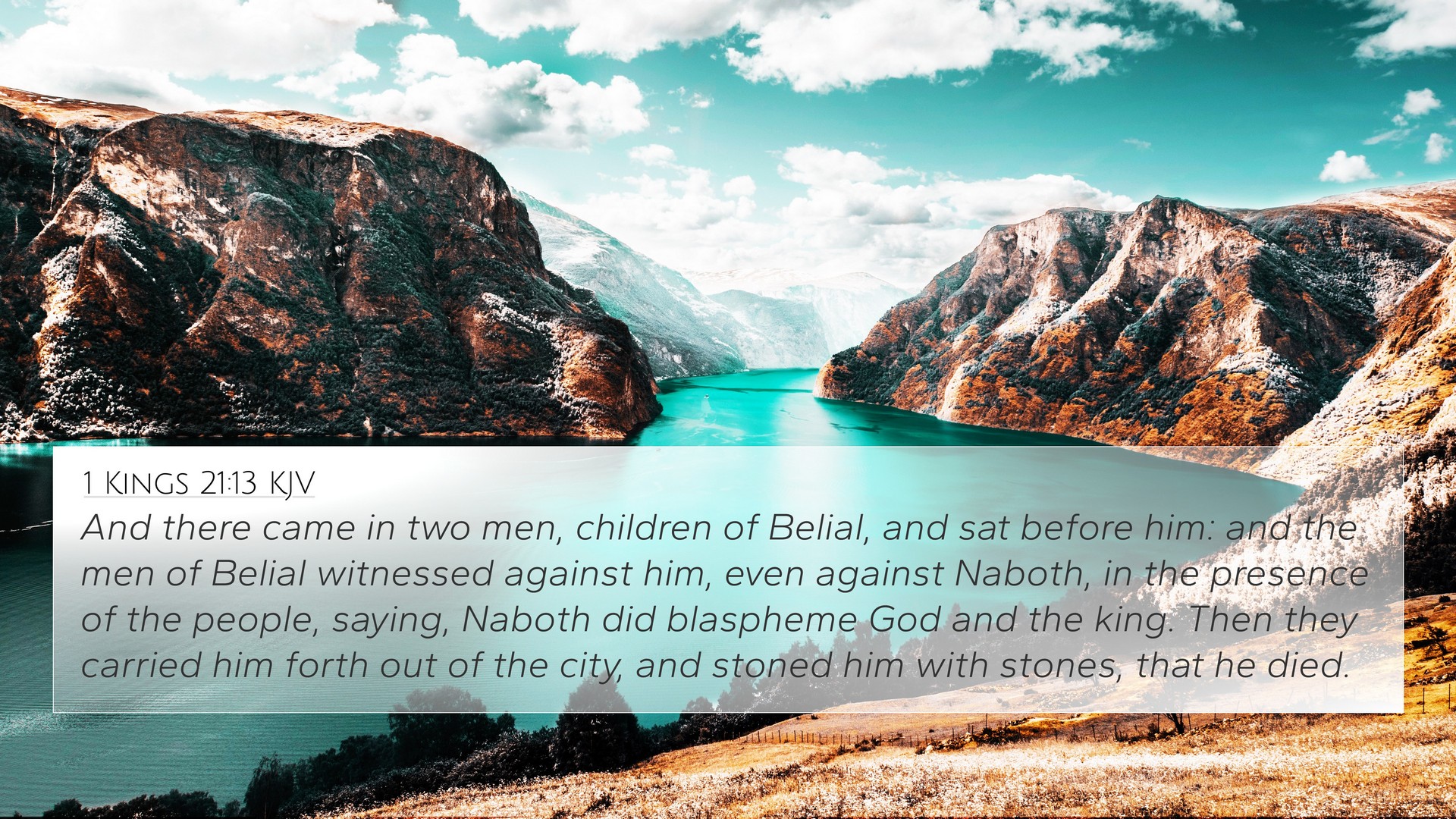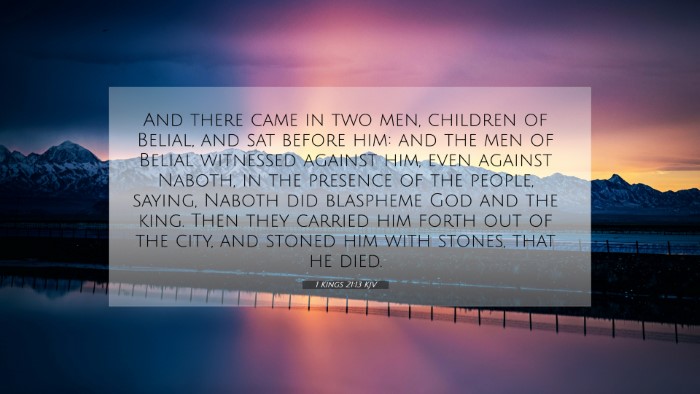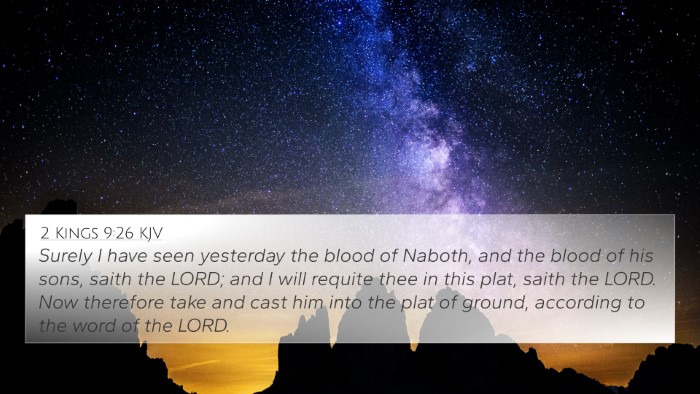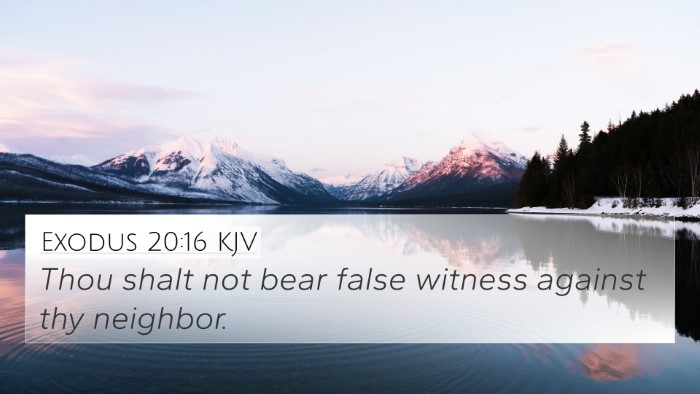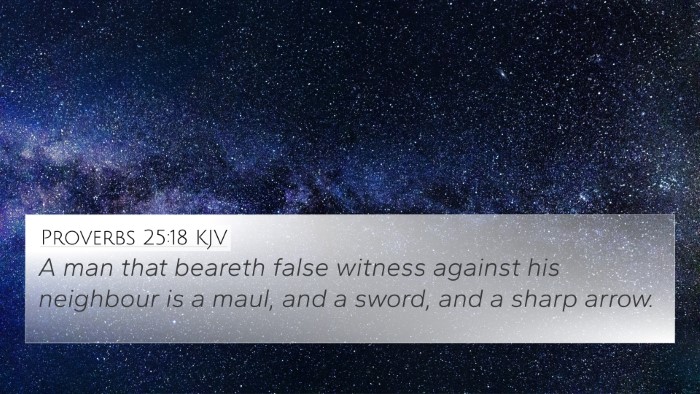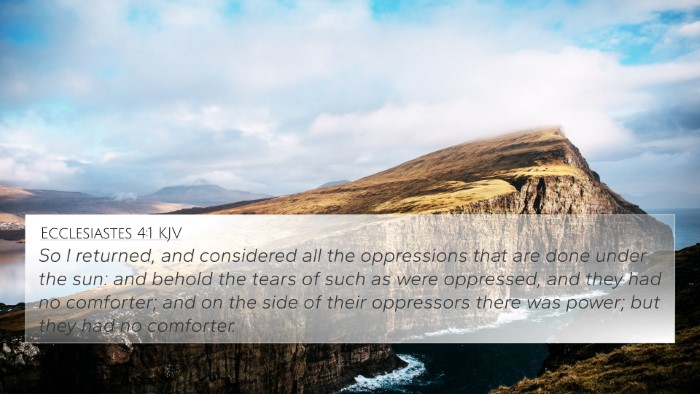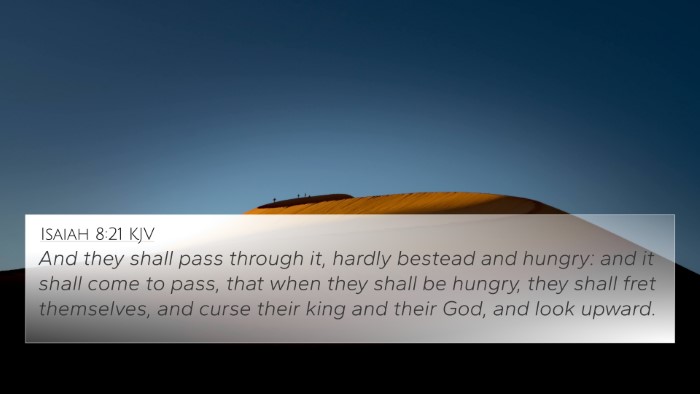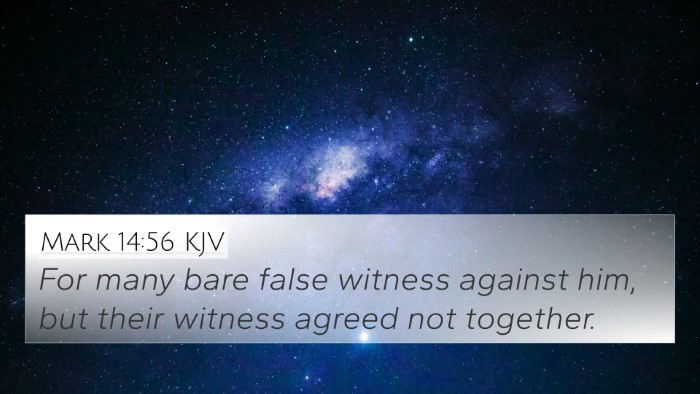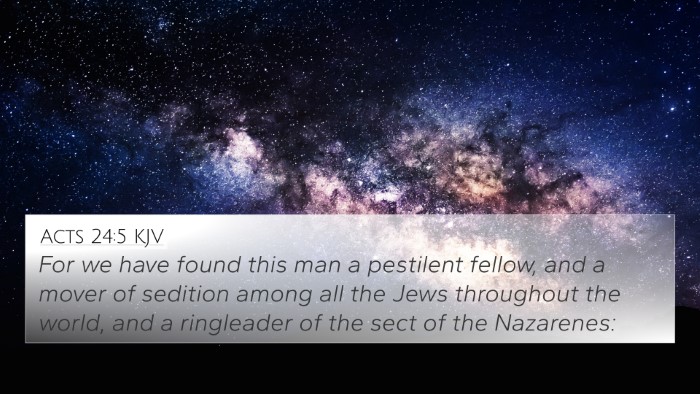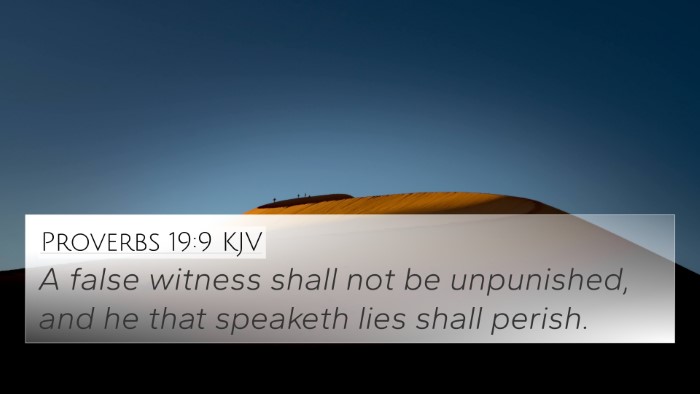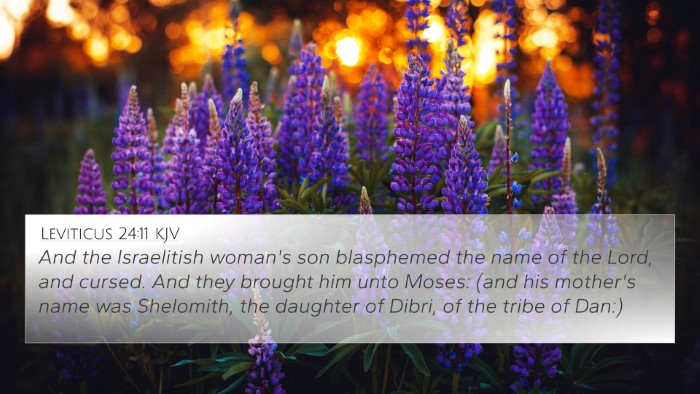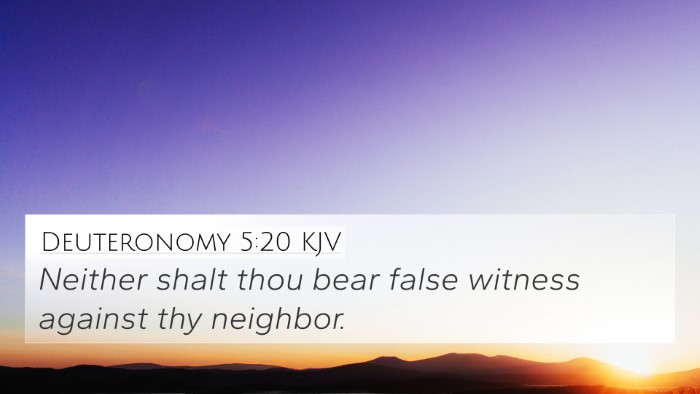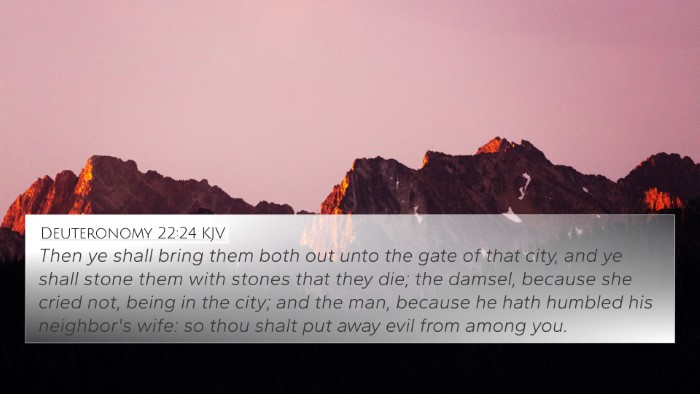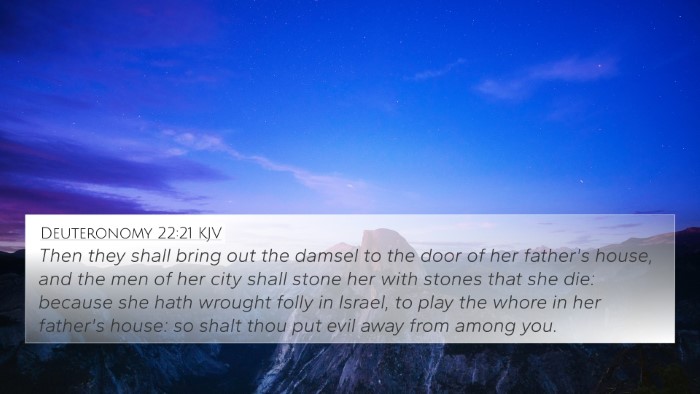Understanding 1 Kings 21:13
In this verse, the impassioned words of those who conspired against Naboth reveal the depths of human depravity and the lengths to which individuals may go for personal gain. The verse states:
"And there came in two men, children of Belial, and sat before him: and the men of Belial witness against him, even against Naboth, in the presence of the people, saying, Naboth did blaspheme God and the king. And they carried him forth out of the city, and stoned him with stones, that he died."
Key Themes and Insights
- False Testimony and Deceit:
Matthew Henry emphasizes the wickedness of using lies and deceit to achieve one's aims, illustrating the malicious intent of Naboth's accusers.
- The Nature of 'Children of Belial':
Albert Barnes discusses the notorious term 'children of Belial,' referring to worthless individuals devoid of moral integrity, thus highlighting the malignant nature of conspiracy.
- Judicial Corruption:
Adam Clarke notes how the judicial process was corrupted, emphasizing that Naboth's execution was the result of a thoroughly perverted legal system.
Bible Verse Cross-References
- Exodus 20:16: "You shall not bear false witness against your neighbor." - This reinforces the command against lying and deceit.
- Deuteronomy 19:15: "One witness shall not rise against a man concerning any iniquity or any sin that he commits; by the mouth of two or three witnesses the matter shall be established." - Relates to the legal requirements for testimony.
- Matthew 26:59-60: "Now the chief priests, the elders, and all the council sought false testimony against Jesus to put Him to death." - A parallel of false witness against an innocent person.
- Acts 6:13-14: "They set up false witnesses who said, 'This man does not cease to speak blasphemous words against this holy place and the law.'" - Again showcasing the theme of false accusations leading to wrongful punishment.
- Proverbs 6:16-19: "These six things the Lord hates, yes, seven are an abomination to Him... a false witness who speaks lies..." - Highlighting God’s disdain for deceit.
- James 4:11: "Do not speak evil of one another, brethren. He who speaks evil of a brother and judges his brother, speaks evil of the law and judges the law." - The moral teaching against slander.
- 1 Peter 2:12: "Having your conduct honorable among the Gentiles, that when they speak against you as evildoers, they may, by your good works which they observe, glorify God." - Contrast of righteous conduct against false accusations.
Comparative Bible Verse Analysis
The actions taken against Naboth serve as a grim reminder of the consequences of unchecked power and the vulnerability of the innocent. The conspirators sought to remove Naboth from their path by constructing false narratives, showcasing a timeless conflict between good and evil.
Thematic Bible Verse Connections
The narrative echoes through scripture, resonating with themes of injustice, corruption, and the price of personal ambition. It leads us to consider how often similar injustices have occurred throughout biblical history, providing a backdrop to God’s ultimate justice.
Tools for Bible Cross-Referencing
To deepen understanding, employing tools such as a Bible concordance or a Bible cross-reference guide can enhance study, helping to identify connections between this verse and others across both the Old and New Testaments.
How to Find Cross-References in the Bible
Finding cross-references can enhance one’s study experience. Utilizing study Bibles, online resources, and specific guides can aid in identifying verses that relate to significant themes, such as injustice and false testimony.
Understanding the Implications
The wrongful demise of Naboth serves as a cautionary tale about the consequences of envy and avarice, reflected in similar stories throughout the Bible. The interconnectedness of these narratives creates a compelling dialogue on ethics and morality in the scriptural context.
Further Studying the Connections
As one engages in cross-referencing Bible study, one may uncover surprising parallels, deepening their understanding of interconnected Biblical teachings. For instance, exploring the similarities between the events in 1 Kings and the trials faced by Jesus allows for a comparative study of suffering and righteousness.
Interpreting Biblical Themes through Cross-References
The themes of justice, falsehood, and divine retribution are prevalent throughout Scripture. Analyzing these connections can enlighten one's perception of God's overarching narrative for humanity.
Conclusion
1 Kings 21:13 serves as a powerful reminder of the struggles between integrity and corruption, innocence and guilt. Through careful analysis and cross-referencing, we open the door to a broader understanding of God's Word and His justice.
